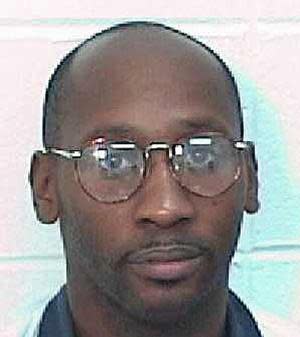 The Lookout
The LookoutTroy Davis to be executed after parole board denies clemency

A Georgia parole board has denied clemency to Troy Davis, the death-row inmate whose case attracted international attention amid what supporters say are significant doubts over his guilt. With the failure of Davis' last-ditch appeal, announced Tuesday morning, he appears all but certain to be executed by lethal injection Wednesday at 7 p.m.
"He's guilty," Joan MacPhail-Harris, the widow of the Savannah cop who Davis was convicted of killing, told reporters Monday before the board announced its decision. "We need to go ahead and execute him."
Davis, 41, was convicted of the 1989 murder of Mark Allen MacPhail, an off-duty Savannah, Ga. police officer. MacPhail, who was running to the aid of a homeless man being pistol-whipped, was shot three times in a Burger King parking lot before he could draw his weapon.
Davis has always maintained his innocence, and several witnesses who testified at his trial have since recanted or backed away from their testimony, alleging they were improperly pressured by police.
The case has generated worldwide attention, with opponents of the death penalty depicting Davis' case as a perfect example of the inherently flawed system of capital punishment. Davis' supporters have sponsored a series of protests and fundraisers for his case in New York, Washington D.C., Paris and Oslo. Last week, supporters delivered petitions with about 650,000 signatories calling on Georgia state authorities to free Davis.
"We're just praying for a good outcome," Davis' sister, Martina Correia, told reporters Monday, before the board's announcement. "We believe in our brother's innocence."
Monday's eleventh-hour appeal marked the culmination of a lengthy effort on Davis's behalf. In 2008, the same parole board rejected a bid for clemency (three of its five members have since been replaced). The following year, the U.S. Supreme Court took the rare step of ordering a federal judge to convene a hearing to consider new evidence. But in 2010, a federal court ruled that Davis had failed to prove his innocence, and denied him a new trial. The Supreme Court declined to get involved a second time, which meant that Monday's hearing represented Davis's last lifeline.
A Friday rally in support of Davis involved civil rights figures including NAACP president Ben Jealous and Martin Luther King III. "The only thing left to decide is whether you have the courage to do the right thing," the Rev. Al Sharpton said, addressing members of the parole board.
One witness who testified at Monday's parole board hearing said she once heard another man who was at the scene of the murder, Sylvester "Redd" Coles, say that he fired the fatal shots. Coles was the first person to implicate Davis to the police. Another of Monday's witnesses was a juror from the original 1991 trial; she had voted to sentence Davis to death but now says she has doubts. Two other jurors signed affidavits asking the board to spare Davis' life.
Former FBI director William Sessions called for Davis' sentence to be commuted to life in prison, writing in an opinion column Thursday in the Atlanta Journal-Constitution that the case is "permeated in doubt." In addition to the witness recantations and allegations of police pressure, Sessions pointed to a "lack of relevant physical evidence."
But Spencer Lawton, the former district attorney who prosecuted Davis and was seen at Monday's hearing, wrote in a 2008 op-ed in the same paper that the witnesses who recanted their testimony were "not believable." Lawton added that shell casings recovered from an earlier shooting linked to Davis were fired from the same gun found at the scene of MacPhail's murder.
